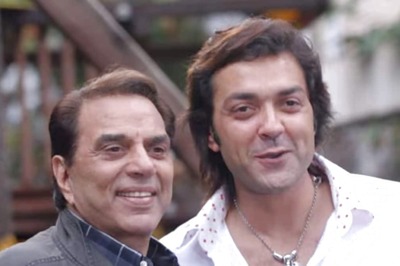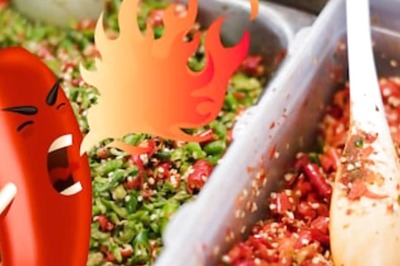
views
 Want to taste some sweet wine this season? One of the sweetest out there? Get ready for a trip to Hungary!
Want to taste some sweet wine this season? One of the sweetest out there? Get ready for a trip to Hungary!
Read the long list of ardent fans for the celebrity wine, Tokaji, - Ferenc Rákóczi II, Hungarian leader of uprising and prince of Transylvania, Peter the Great, Catherine the great, Joseph Hayden, the great Austrian composer - you’d wonder what they saw in it.
Wait until you taste it.
Now you know why admirers form a long queue after the golden syrup that oozes out of some dried bunch of grapes from the vineyards of Tokaji, in Hungary.
The wine was coming from the hilly regions of north-east Hungary from as early as 16th century. Those days, vineyards were plentiful in Europe and the ripening berries in Hungary always had harvesters patiently waiting outside grape varieties like Furmint and Hárslevelű until the grapes got dried, shrivelling from noble rot. They were picked, placed in tubs called Puttonyos and trodden or crushed.
No, it is nothing like the ordinary pulp you get from punishing ordinary grapes born in ordinary places. These shrivelled berries from the hillsides of Hungary after their long wait in the sun, acquire a sweetness that even sugar syrup fail to vie with, but sweetness won’t last long.
The golden days of Tokaji wine came to an end with the communist regime taking over the country. Quality took a severe beating with the new government looking elsewhere and the taste of Tokaji slowly receded to become just a sweet memory in the minds of old timers or a casual reference in some books.
Hungary had to wait. So, too, the Tokaji.
When finally the country shook off communism in the last decades of twentieth century, its doors for privatisation were thrown wide open. Tokaji wine was one of the first to benefit from the onrush of investors. British wine writer Hugh Johnson and his Danish partner Peter Vinding-Diers in 1989 joined hands to blow life once again into one of the greatest wines of Europe.
Today, the most desirable of their wines is the Tokaji Eszencia, a syrup of a wine, which you can deal with only by using a table spoon (because of its intense sweetness).
So, how do they make it?
You know, they won’t even press the grapes for making Eszencia that would be too hard, but they leave bunches of nobly rotted grapes on piles over one another in a tub with perforated bottom. With the gentle weight they exert on one another while lying in the dark and lonely tub, far away from any human presence, drops of dark gold that gets slowly squeezes out from the berries drip down through the perforation - drops of Eszencia!
Taste it!
The sugar content of this syrup that gets collected in the tub below would be so sweet that that even the greedy, sugar-toothed yeast cells fail to ferment it (No wonder the tablespoon). However hard they try it, the wine acquires only 3% alcohol.
But don’t dismiss it for its sweetness. The syrup was once seen as precious as liquid gold when Tsars and Kings thought it could do magic to their failing libidos. Even at their deathbeds they would not leave until they had that one last shot of the wine.
Don’t worry even if you could not get your hands on Eszencia before you die. When it had dripped out of the perforated tub there would still be enough sweet juice clinging to the berries. They crush or trod it and ferment the liquid to make the much-coveted Imperial Tokaji wine. You don’t have to die to taste it.
Tokaji wine is deep gold in colour and in the mouth, you can feel that its intense sweetness is perfectly balanced by a startlingly high acidity. You can pick the flavours of dry fruits, apricots apart from the citrus notes.
So, ready for Hungary?
(Manu Remakant is a freelance writer who also runs a video blog - A Cup of Kavitha - introducing world poetry to Malayalees. Views expressed here are personal)




















Comments
0 comment